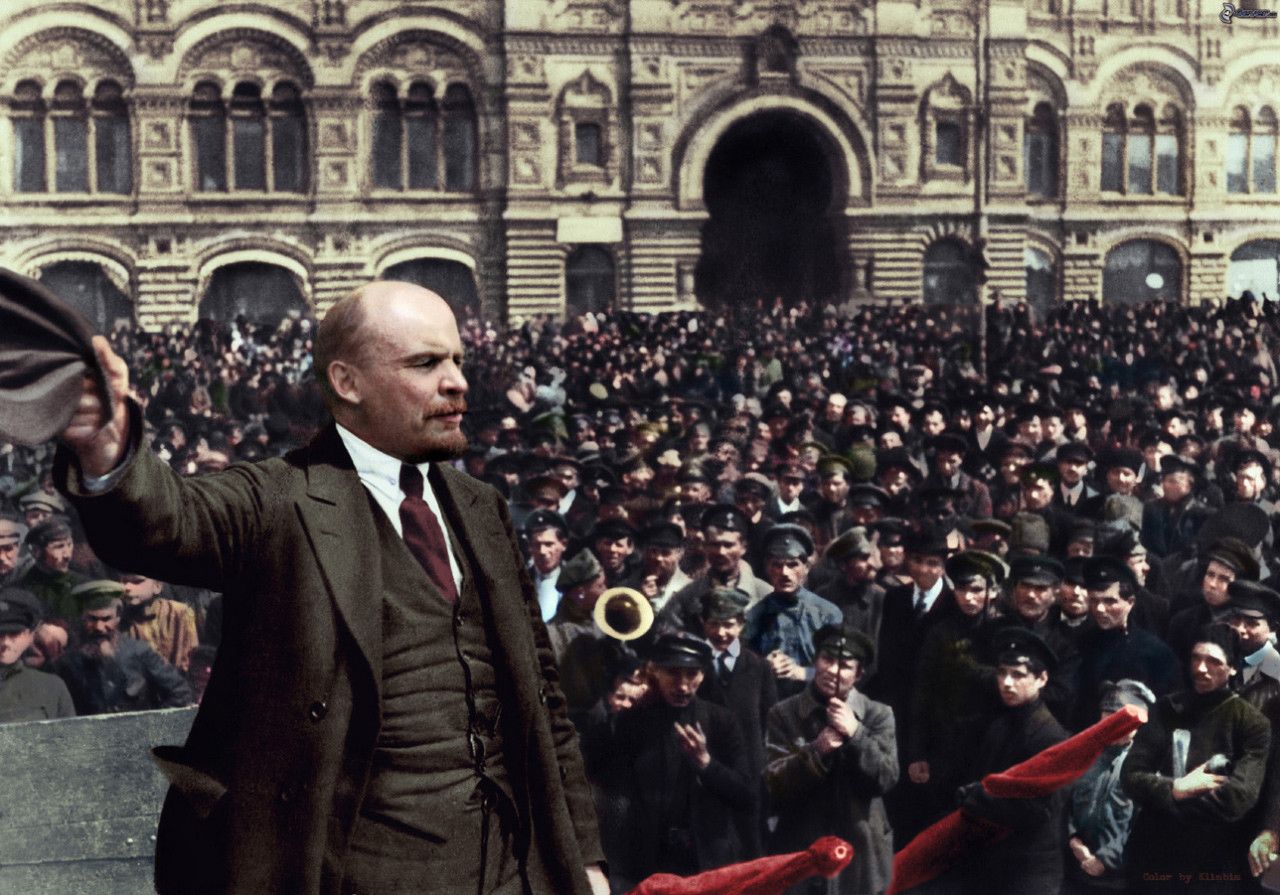Visitors have accessed this post 206 times.
Vladimir Lenin was a Russian revolutionary, political leader, and theorist who played a pivotal role in the establishment of the Soviet Union. His ideas and political philosophy, known as Leninism, had a profound impact on the course of world history in the 20th century. In this article, we will explore the life and legacy of Vladimir Lenin, focusing on his role in the Russian Revolution, his rule in the Soviet Union, and his influence on modern politics.
Early Life and Education
Vladimir Ilyich Ulyanov, better known as Lenin, was born on April 22, 1870, in the city of Simbirsk, Russia. He was the third of six children in a well-educated and politically active family. Lenin’s father was a school inspector and his mother was a teacher. His older brother, Aleksandr, was executed for his involvement in a plot to assassinate Tsar Alexander III in 1887, which had a profound impact on Lenin’s political views.
Lenin received a classical education at home and later attended the University of Kazan, where he studied law and politics. He was heavily influenced by the writings of Karl Marx and Friedrich Engels and became involved in Marxist circles during his university years.
The Start of Lenin’s Political Career
After graduation, Lenin became involved in revolutionary politics and joined the Russian Social Democratic Labour Party (RSDLP) in 1898. He quickly rose through the ranks of the party and became a leading figure in the Bolshevik faction, which was dedicated to the establishment of a socialist government in Russia.
Lenin’s political activities led to his arrest and imprisonment several times throughout his career, but he continued to work for the cause of socialism in Russia. He spent years in exile in Switzerland, where he wrote many of his most important works on Marxist theory and developed his vision for a socialist society.

The Role of Lenin in the Russian Revolution
Lenin’s leadership was crucial to the success of the Russian Revolution of 1917. He was instrumental in the founding of the Bolshevik Party, which became the driving force behind the revolution. Lenin’s April Theses, a set of ten directives he issued upon his return to Russia in April 1917, set out a clear plan for the Bolsheviks to take power.
In October 1917, the Bolsheviks, led by Lenin, seized power in a bloodless coup known as the October Revolution. Lenin became the head of the new Soviet government, which was dedicated to establishing a socialist society.
Lenin’s Rule in the Soviet Union
After the Bolsheviks took power, Lenin set out to implement his vision for a socialist society in Russia. He established the Soviet government, which was based on a system of workers’ councils, or “soviets,” that would govern the country.
One of Lenin’s most significant policies was the New Economic Policy (NEP), which allowed for limited free market activity in the Soviet economy. This policy helped to revive the economy after the devastation of World War I and the Russian Civil War.
However, Lenin’s rule was also characterized by repression and violence. The Red Terror, a campaign of violent repression against political opponents, was implemented under Lenin’s leadership. This campaign resulted in the deaths of thousands of people and the suppression of political opposition.

Lenin’s Legacy
Lenin’s ideas and political philosophy, known as Leninism, had a significant impact on the course of world history in the 20th century. Lenin’s interpretation of Marxist theory emphasized the need for a vanguard party to lead the proletariat in the revolution.
Lenin’s influence on international socialism was also significant. He founded Communist International, an organization dedicated to spreading the ideals of communism around the world. Lenin’s ideas and leadership were instrumental in the establishment of communist governments in countries such as China, Cuba, and Vietnam.
In the Soviet Union and Russia, Lenin’s legacy has been a topic of debate and controversy. Some see Lenin as a hero and revolutionary leader who helped to establish a socialist state, while others view him as a tyrant who was responsible for the suppression of political opposition and the establishment of a totalitarian regime.

Criticisms of Lenin and His Ideology
Critiques of Lenin and his ideology have come from both the left and the right. From the left, critics have argued that Lenin’s emphasis on the vanguard party and the need for a revolutionary elite has led to authoritarianism and the suppression of democratic participation.
From the right, Lenin has been criticized for his role in the establishment of a communist government that led to the suppression of political opposition and the violation of human rights.
Controversies surrounding Lenin’s legacy also include debates over his role in the execution of Tsar Nicholas II and his family and the suppression of national movements in the Soviet Union.

Conclusion
Vladimir Lenin was a revolutionary leader whose ideas and political philosophy had a significant impact on the course of world history in the 20th century. He played a crucial role in the Russian Revolution, the establishment of the Soviet Union, and the spread of communism around the world.
While Lenin’s legacy remains controversial, his ideas and leadership continue to shape political discourse in the modern world.
